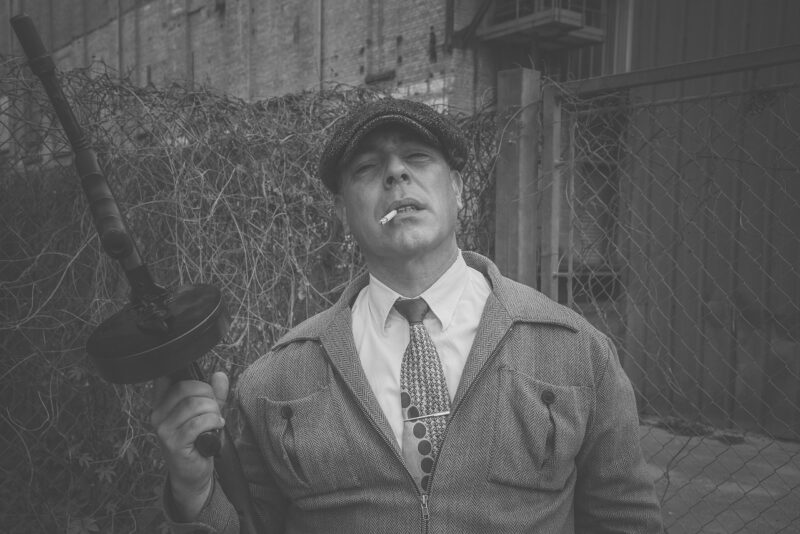The Role of the Mafia in U.S. Politics: From Influence to Scandal
November 15, 2024

The Mafia has an enigmatic and notorious reputation that has fascinated people across multiple generations. While much of popular culture depicts organized crime on the silver screen, the reality is that the Mafia’s influence has extended beyond the shadows and into the heart of U.S. politics. From extortion to political corruption, the intertwining of organized crime and political machinery raises numerous questions about power, money, and ethical governance.
1. The Origins of Mafia Influence in America
The origins of Mafia influence in U.S. politics can be traced back to the early 20th century. As Italian immigrants arrived in large numbers, many faced hostility and economic challenges. In response to social exclusion, some Italian mafias began to form as a means of protection and community solidarity. However, with these roots also came the pursuit of power and wealth, leading some factions to engage in criminal enterprises that would replace traditional businesses.
Mafia organizations such as the Sicilian Mafia and its American counterpart, La Cosa Nostra, began to infiltrate legitimate businesses, effectively creating a parallel economic system. This infiltration set the stage for their expansion into political domains.
2. An Unholy Alliance: The Mafia and Politicians
The post-World War II era witnessed a significant rise in Mafia influence over American politicians, especially in cities with heavy immigrant populations like New York, Chicago, and Las Vegas. Organized crime syndicates found a golden opportunity: political corruption. They frequently forged alliances with political figures desperate for funding, especially during elections.
- Campaign Funding: Men like Sam Giancana, the Chicago Mafia boss, were known to “contribute” sizable amounts to political campaigns in exchange for support or protection. This funding often came from illicit activities and served as a means to exert influence on elected officials.
- Vote Fixing: Mafia members were involved in vote manipulation, sometimes intimidating voters or devising schemes to alter results. This criminal action fortified their control over local elections, ensuring politicians were beholden to them.
- Bribery & Corruption: Bribery became a systematic way for the Mafia to maintain influence. Politicians would often turn a blind eye to illicit activities in exchange for monetary incentives or favors, further creating a cycle of corruption that benefited both parties.
The consequences of these alliances were far-reaching, enabling organized crime to flourish while eroding public trust in governance.
3. Key Figures in Mafia-Political Connections
Multiple high-profile figures have exemplified the notorious connections between the Mafia and U.S. politicians. Here are some of the most striking cases:
- John F. Kennedy: The Kennedy family’s ties to organized crime, particularly through Sam Giancana, raised eyebrows. Speculation suggests that the Mafia helped secure votes for Kennedy in Illinois during the critical 1960 presidential election.
- Mayor Richard Daley: The legendary Chicago mayor was often accused of colluding with the Mafia to maintain power. His long tenure saw rampant political corruption, with organized crime working closely with his administration.
- Louisiana Governor Earl Long: A known associate of the Mafia, he was embroiled in numerous scandals that tied him to organized crime figures, illustrating the rampant corruption that plagued the Louisiana political landscape.
These individuals highlight how connections between organized crime and politics often overtly existed, fostering a toxic environment of mutual exploitation.
4. The Turning Point: Investigations and Crackdowns
By the 1970s and ‘80s, the Mafia’s influence was beginning to face backlash as law enforcement intensified efforts to combat organized crime. Investigations and high-profile trials exposed the extent of political corruption. Key moments include:
- The McClellan Committee (1957): This Senate investigation led to significant revelations about the Mafia’s influence in labor unions, highlighting ties to political figures and forcing changes in labor laws.
- RICO Act (1970): The Racketeer Influenced and Corrupt Organizations Act empowered law enforcement to prosecute organized crime figures by attacking their profits and William “Billy” Walters’s arrest signaled the U.S. government’s commitment to eradicate such crime.
- Operation Silver Shovel: This FBI undercover operation during the early 1990s directly connected Chicago politicians with the Mafia, ultimately leading to numerous indictments and arrests.
Such investigations not only disrupted Mafia operations but also sought to restore some integrity to entwined political machinery. Despite this, remnants of organized crime considerably persist, employing more sophisticated means to maintain influence.
5. The Legacy: Mafia Influence Today
The following decades witnessed a shift in organized crime tactics. The Mafia adapted to changing political landscapes, with their influence remaining pervasive.
- Political Donations: While direct collusion has diminished, organized crime still impacts politics through campaign contributions. Many politicians receive donations, from seemingly legitimate sources, that can be traced back to the Mafia’s profits.
These funds still play a crucial role in elections, ensuring the Mafia’s interests remain in the political ecosystem. - Corruption Networks: Organizing crime now operates through a network where politicians and bureaucrats engage in corruption, sometimes unknowingly facilitating criminal enterprises under the radar.
This parallels the culture of collusion that persisted in past decades. - Cultural Desensitization: Media portrayals of organized crime can also glamorize Mafia activities, with figures like Tony Soprano romanticized on television. This depiction can shape public perception, making illicit actions seem tolerable.
Overall, the Mafia’s historical engagement with U.S. politics has morphed, but the legacy remains. While direct connections may now be less blatant, the lessons from organized crime’s influence underscore a cautionary tale of the dangers of intertwining money and politics.
Conclusion: Lessons Learned from Mafia Influence
The interaction of organized crime and U.S. politics illuminates fundamental issues about governance, ethics, and the balance of power. It serves as a reminder of the dark undercurrents that can exploit existing political frameworks for ulterior motives. As new challenges arise in the political landscape, vigilance against corruption remains paramount. Recognizing the Mafia’s enduring legacy can serve as a tool for future governance, ensuring a commitment to transparency and integrity to safeguard against past mistakes.






